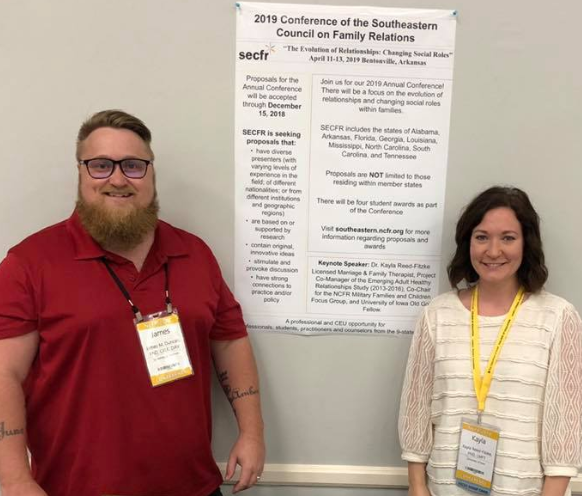James Duncan, an adjunct professor in the University of Arkansas School of Human Envionrmental Sciences, has received a Society for Military Psychology Member/Affiliate Research Grant to conduct research into how to help at-risk soldiers get the support needed to be safe and successful early in their careers. The $2,500 grant will help fund the research project, "Identifying At-Risk U.S. Army Soldiers: A Person-Centered Approach to Adverse Childhood Experiences."
Duncan is the co-investigator and Kayla Reed-Fitzke from the University of Iowa College of Education is the principal investigator.
This study seeks to identify at-risk early career Army service members by using a novel, person-centered approach to examine adverse childhood experiences, combat-related stressors, and mental health. Adverse childhood experiences include verbal, physical or sexual abuse, as well as family dysfunction, such as an incarcerated, mentally ill, or substance-abusing family member; domestic violence; or absence of a parent because of divorce or separation.
Reed-Fitzke says the research is critical because more than 3.5 million individuals serve in some capacity in the U.S. Armed Forces. As service members train and progress through their military careers, they will be confronted with numerous stressors, such as future deployment overseas, Empirical evidence indicates that adverse childhood experiences are a critical public health concern because they are linked to mental health disorders and several leading causes of death.
"Given the military's long history of overseas missions in support of the Global War on Terrorism, and military leaders continued focus on mission readiness, early career service members are likeliy to experience deployments and other military related stressors multiple times throughout their career," Duncan says. "Using adverse childhood experiences to help identify at-risk soldiers will bolster targeted intervention efforts and possible prevention points that can help promote positive functioning within the military operating environment."
James Duncan previously served as a non-commissioned officer in the U.S. Air Force, during which time he was awarded the Combat Action Badge and the Purple Heart while carrying out duties as a Lead Vehicle Commander performing convoy operations with the U.S. Army. Following his military service Duncan has focused on researching novel approaches to promote positive outcomes for service members, veterans, and military families across their lifespan.
Contacts
James Michael Duncan, Dr.
AFLS-Human Environ Science
479-966-9567, jmduncan@uark.edu
